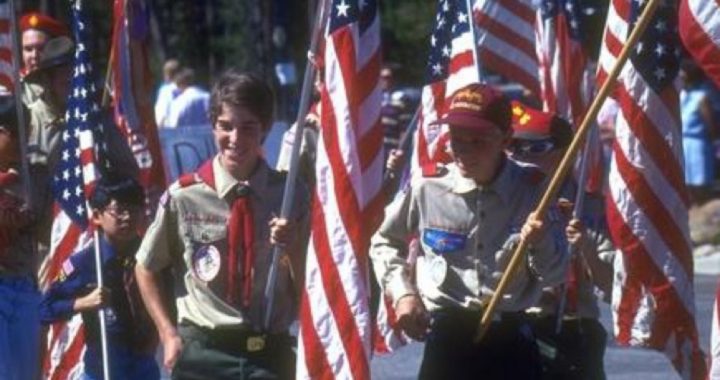
If you belong to the Boy Scouts of America, you’re not fit to be a judge in California, that state’s Supreme Court has decided. The court announced on Friday that all seven of its justices had voted to accept the recommendation of its ethics advisory committee that places the Boy Scouts among the organizations judges may not join. The ban applies to “any organization that practices invidious discrimination on the basis of race, sex, gender, religion, national origin, ethnicity or sexual orientation.” The Scouts have dropped the ban on membership for openly “gay” boys under 18 but still prohibit homosexual and lesbian adults from serving as staff or voluntary leaders.
The state’s high court has banned judges from belonging to groups that discriminate on the basis of sexual orientation since 1996, but made an exception for nonprofit youth organizations. The Supreme Court’s Advisory Committee on the Code of Judicial Ethics in February recommended eliminating the exception to enhance public confidence in the judiciary. The court’s unanimous decision did not mention the Boy Scouts of America, the Los Angeles Times reported, though there was little doubt that it was the intended target. The ethics advisory committee wrote the exception was “anomalous and inconsistent” with development in the law regarding same-sex relationships, citing the Supreme Court’s decision in 2013 to overturn the federal Defense of Marriage Act and to allow a lower court ruling to stand striking down Proposition 8, the law adopted by California voters in 1988 to limit marriage to a union between one man and one woman.
The committee invited public input on the proposed prohibition last year and received more than 600 comments, including a strongly worded message from 104 California attorneys objecting to the ban. “The proposal creates an unconstitutional test for public office, threatens the constitutional rights of California judges, and states unabashedly that it is designed to punish the Boy Scouts of America by prohibiting California judges from participating in that group’s activities,” the attorneys stated in a 10-page e-mail. Barbara Kronlund, a judge in the San Joaquin County Superior Court and the mother of a Scout, wrote to express her concern that the ruling would lead to the “infringement of my right to free exercise of religion as guaranteed by the 1st Amendment.” Judge John Vineyard, who presides in Riverside County, described himself as a Superior Court judge, a Scoutmaster, an Eagle Scout, and a Scout parent. “Those roles are not, and have never been, incompatible,” he wrote to the court.
The change was endorsed by the California Judges Association. Justice James Humes, an openly gay man who sits on the state’s Court of Appeals, argued the exception should be abandoned “because it incites distrust in judicial impartiality, demeans gay and lesbian judges and is offensive and harmful.” There are 47 states that prohibit judges from membership in organizations that discriminate, and 22 of them define that to include bias based on sexual orientation. California was the only one that made an exception for youth groups. “One other exception — belonging to a military organization — was eliminated as well, because the U.S. armed forces no longer restrict military service based on sexual orientation,” said Justice Richard Fybel, an appeals court judge who is also chairman of the ethics committee. “The only remaining exception to the general rule is membership in a religious organization,” Fyberg said.
But who knows how long that exception will last? If a judge’s membership in an organization that does not admit gay or lesbians “incites distrust in judicial impartiality,” then what of a Catholic judge, who belongs to church that does not ordain women to the priesthood, or a Lutheran judge if his church bans openly gay or lesbian men and women from teaching Sunday School. To be sure, the U.S. Constitution guarantees religious freedom and prohibits a religious test for public office. But courts self-ordained to stamp out the scourge of “invidious discrimination” all across the land may yet brush aside even those lesser considerations.



